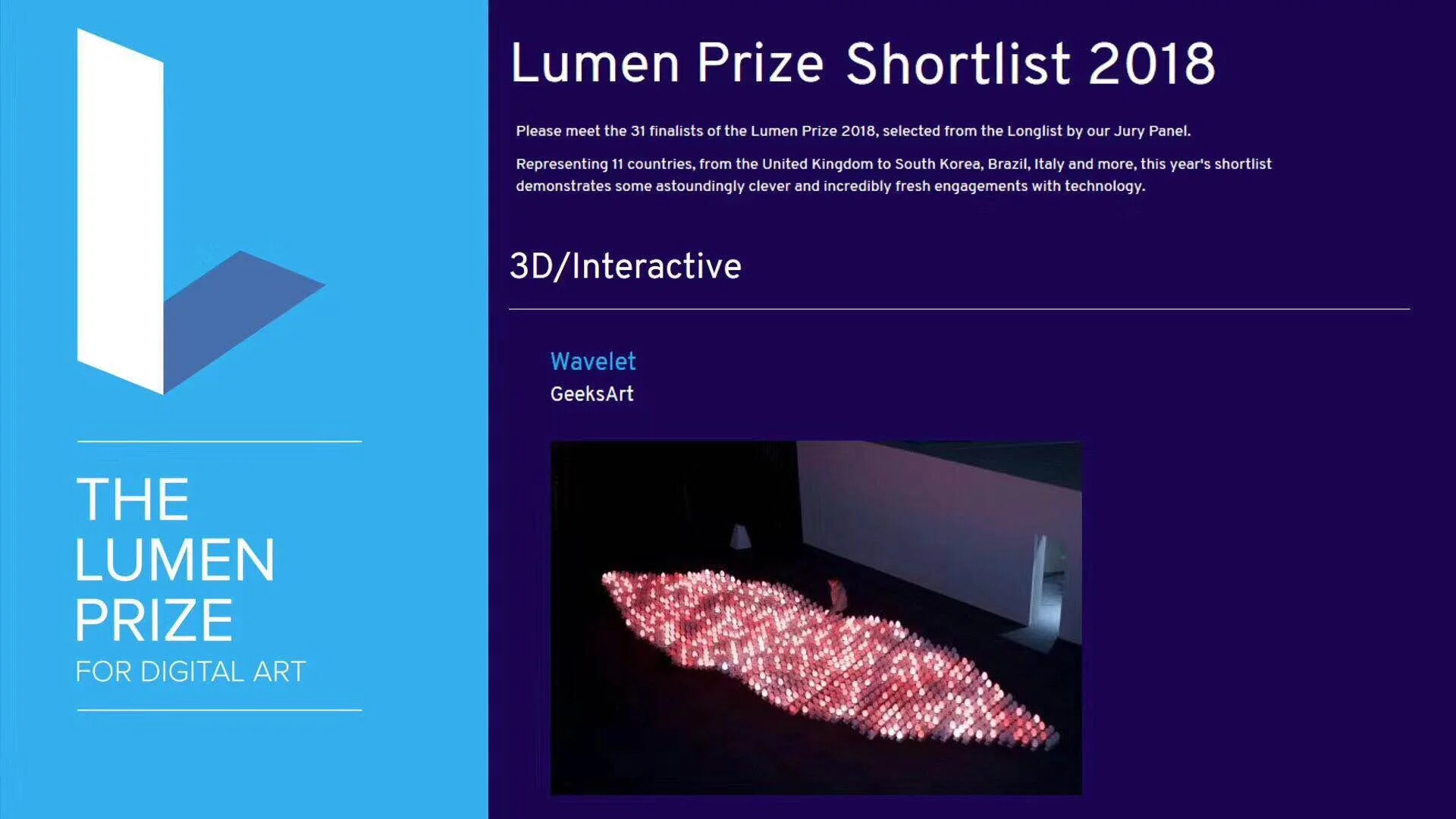
my role in this project
Overall design (including material selection and modeling) interactive design, testing, and exhibition design on-site
Preliminary work
Starlight Flow is a waterfall of light composed of 660 sensor light balls. When the sensor bulbs receive external light, they will be immediately lit and form a magical change of domino effect.
This installation work named Wavelet is my team's comprehensive upgrade design for our preliminary work starlight flow. It is made specifically for us to participate in the International New Media Art Exhibition.
Ways to interact with this piece
When the audience approaches the installation, their presences are turned into, merging into this flow of light, creating a complex flow of light with others.
Concept
Wavelet is a mechanical lighting interaction installation, serving as a medium of exploration of non-verbal communication between people. I create this installation bearing qualities like water, which is sensitive and inclusive, hoping to reconnect the viewers and to teach them to sense and feel their surrounding environment and people.
Source of Inspiration
Water is sensitive. When you gently touch the surface of the water, the ripple created by this touch could be carried around the entire surface. The life of humans is like running water. Interactions between people are like ripples. No man is an island and we are all interconnected in one space. Even the tiniest action could cause an effect that lasts for a long. When the interaction between the human return to the state similar to how human interact with water, our conversation and modes of thinking could become light, soft and inclusive.
Ways of interaction
Similar to how the audiences interact with wavelet 1.0, when they approach close to the installation, they would become part of it, creating a complex light ripples and wave with the others.
sketches of the design
Water-drop lamp
Modular design from each single unit to a entire module each unit is programmable and can be aligned together
The water-drop lamp is made of semi-transparent material and adopts a semi-arc 45°cutting design, making it shape like a water drop;
Oars: The end of the oars are trimmed to make it visually lighter.
Function: Support the water-drop lamp and link the motor.
modular design

The installation is composed of five modules as a whole. Each module (carrying 11 pairs of aluminum bars) has a length of 2m and a total of 10m. Each module is equipped with 176 water- drop lights.

Size: 10*3*1.4m
assemble of the base
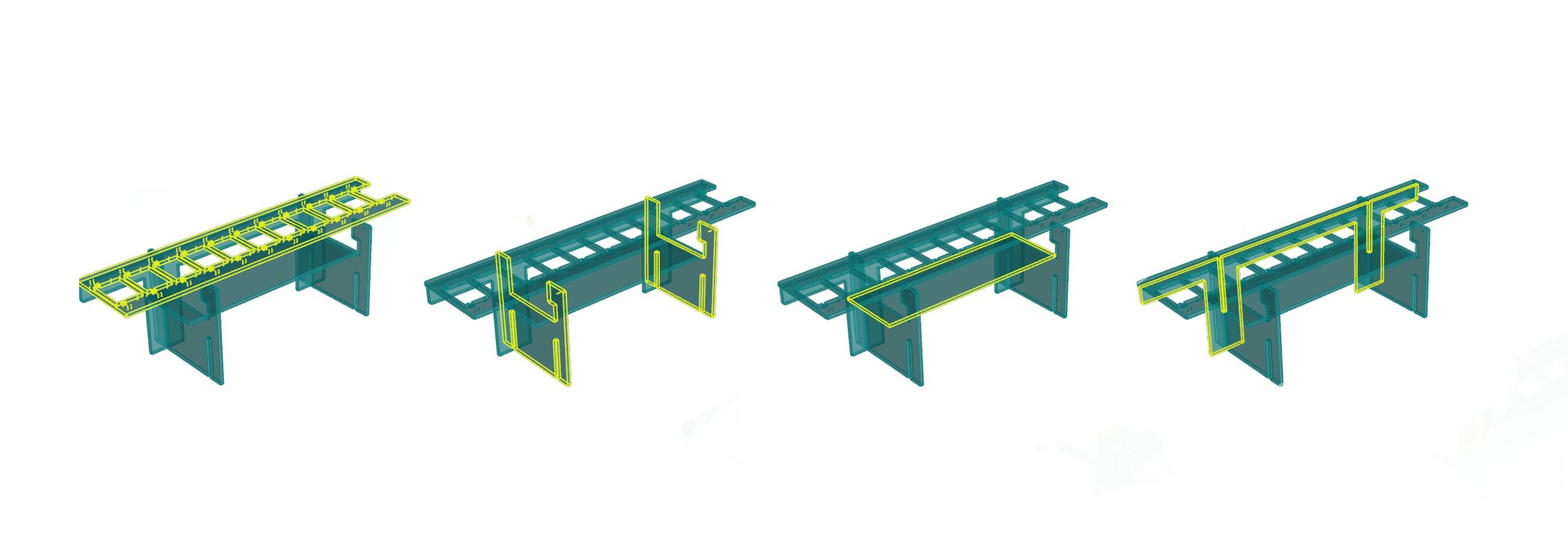
mechanical renderings
In the design of the mechanical version of wavelet, I installed an independent motor between each two oars to divide the entire installation into 55 small modules, and controlled each module individually with a program.
light and elegant
overall design
Lives of people are constantly changing, and everything is a flow. It is the first time that this natural motion of flowing is being cooperated in the design.
choosing of material and assembling the parts
crafting the lampshade
Water-drop lamp 2.0.
Material: PMMA.
Process: 3D printing.
oars for water-drop lamp
Material: Aluminium.
Design: 1. Double-hole to fix the lamp, saving the step of adjusting the angle of the lampshade.
2. Uniform length, and the use of symmetrical design to reduce the length of the longest oar by half, making it easier to transport and to install on-site. All resulted in significant savings in internal space, reducing the thickness of the oars.
How the oars were crafted: All oars were varnished and wiredrawn.
packaging
Considering the packaging of long-distance transportation to save costs for installation onset
the base and the mechanical structure
Base 2.0.
Material : acrylic
1. Germination of a feeling of floating in the air of the wavelet, by using the transparent acrylic material material.
2. Modular design, the entire work consists of 5 of the same base to make it easy to transport.
tests for mechanical movement



interaction mode
Photosensitivity and transitivity: The change in light intensity stimulates the movement, resulting in a series of chain reactions. Each water-drop has a built-in independent lightning effect processing system.
Interaction: When the light source becomes closer to each water-drop lamp, it will be lit immediately. This will be transmitted to the surrounding water-drop lamp. A visible "lightwave" then extends to the edge of the device.
display mode
1.Many becoming one 2.Breaking the bondage 3.Becoming free like water 4.Resonating with the others
exhibition design
on-site installation process




"Excepted and Unexpcepted" 2019 ShangHai Himalaya Art Museum



"Excepted and Unexcepted" 2019 Xi'an Qujiang Creative Valley
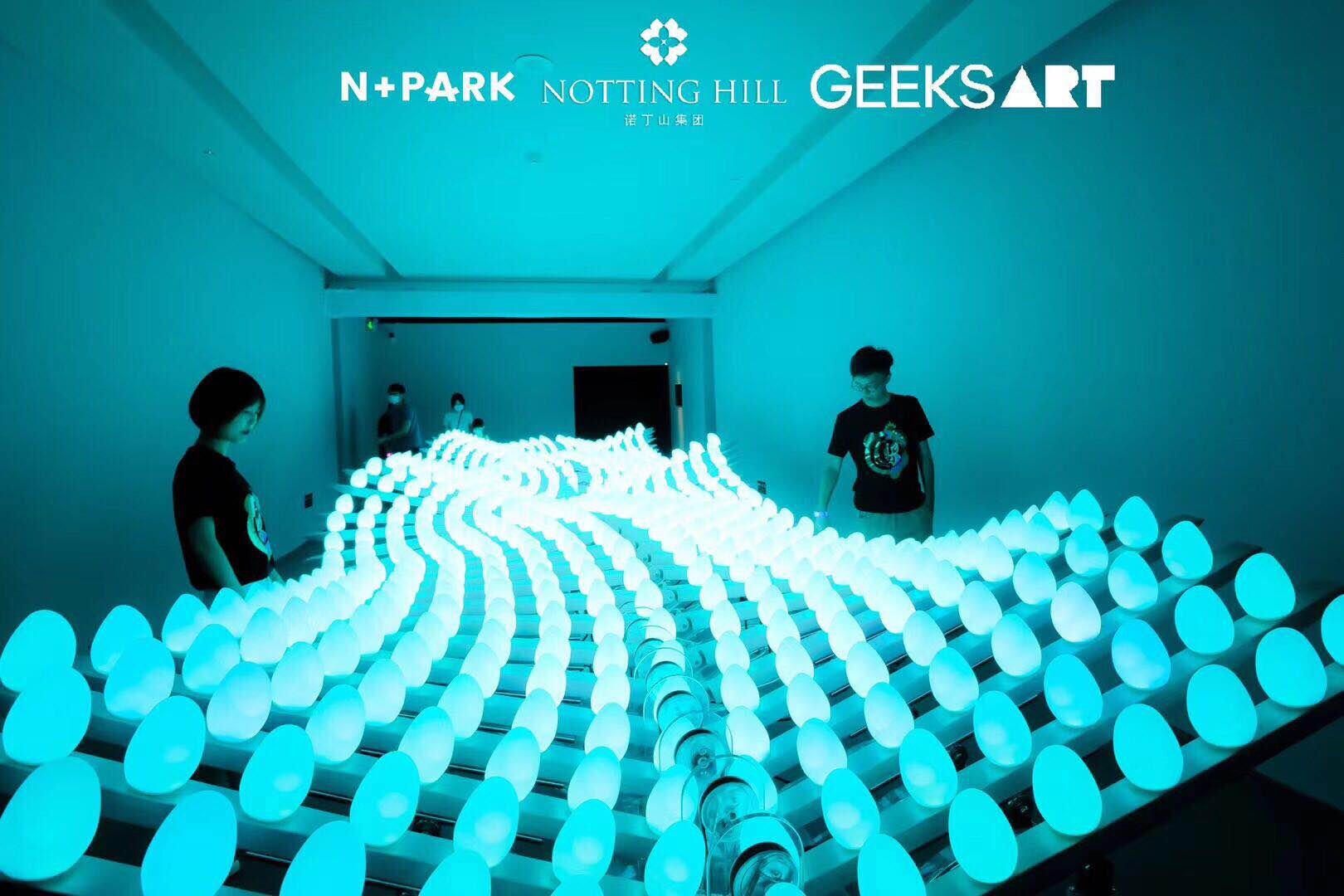
"Excepted and Unexcepted" 2020 Hangzhou Notting Hill Art Center

"Excepted and Unexcepted" 2019 Shenzhen Yanhan Highland Art Center
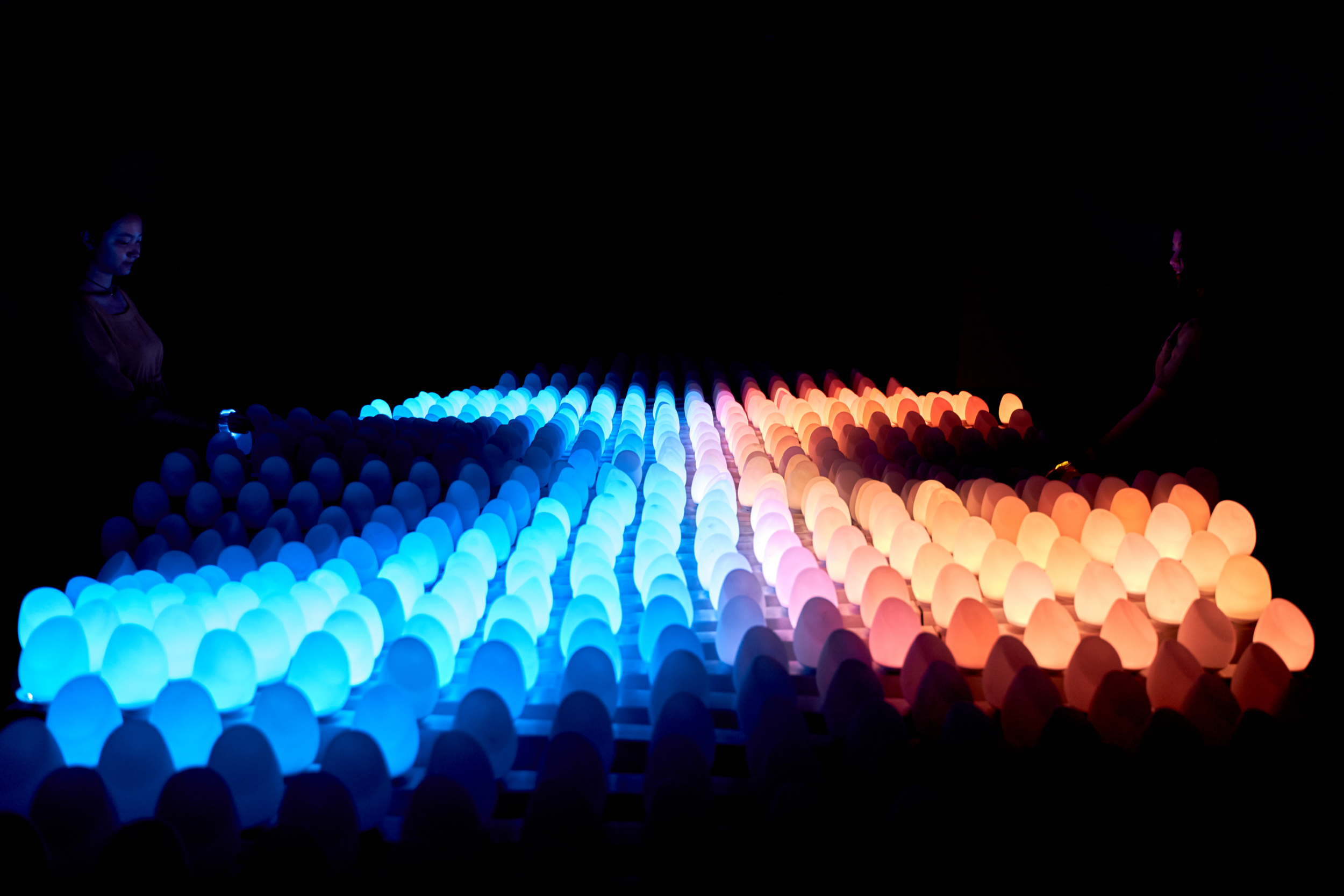
"Excepted and Unexpcepted" 2019 ShunDe Desheng Art Museum
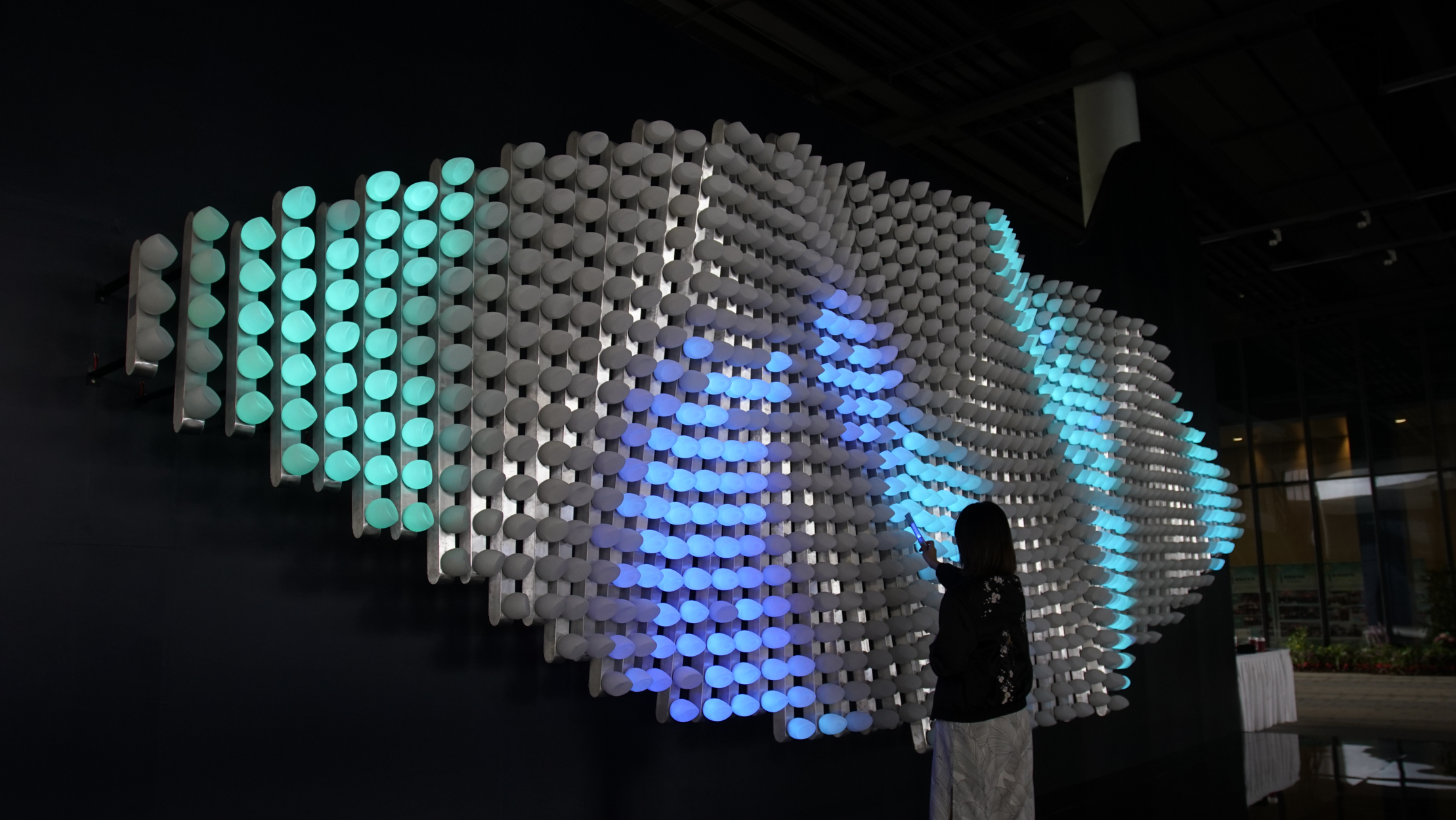
Installation was being featured in the Alibaba TES Summit

Installation was also being featured in the Guerlain store
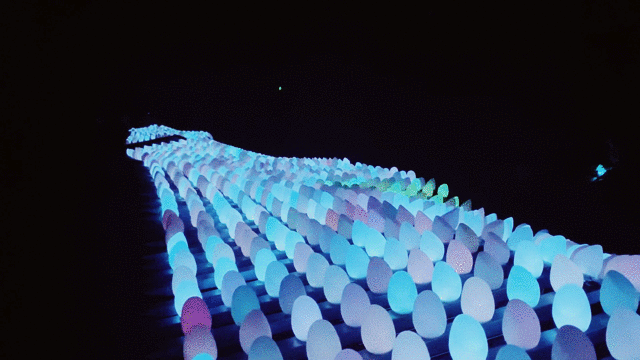
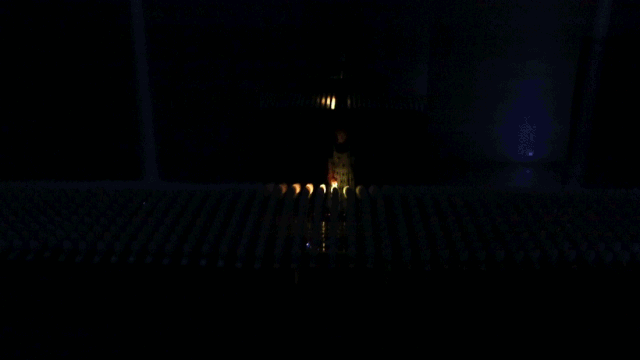
![C0074[00-00-15--00-00-20].gif](https://images.squarespace-cdn.com/content/v1/5f36b26e80671c0b32a5ef75/1601095433609-8PL87V4JOWCR6FJ5NDX9/C0074%5B00-00-15--00-00-20%5D.gif)
![C0076[00-00-59--00-01-03].gif](https://images.squarespace-cdn.com/content/v1/5f36b26e80671c0b32a5ef75/1601095250016-LU32TE6I2M0VM7Z1BGBB/C0076%5B00-00-59--00-01-03%5D.gif)
award
